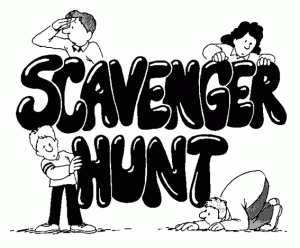
“Play is what people do when they create culture. It is the letting free of the human imagination to create shared meanings. Play is a fundamental category of human behavior without which civilization could not exist.” Jeremy Rifkin from the book “The Age of Access”.
Tough economic times can bring about attempts to devalue the way companies view Recreational Team Development, Play, and Experiential Education. Recent research on the importance of play shows that when “play” is a part of a company’s values and its culture, it has a direct and immediate impact on team effectiveness and innovation.
Consider these recent findings:
1. PLAY REDUCES ERRORS AND INCREASES EFFICIENCY:
One study found that physicians who spend three hours a week playing video games made about 37% fewer mistakes in laparoscopic surgery and performed the task 27% faster than their counterparts who did not play.
2. PLAY PREPARES YOUR TEAMS FOR A CHANGING WORLD:
Play provides the arena where new ideas can be tested, where Emotional Intelligence competencies can be developed and where situations a group has never before encountered can be overcome. Out of this Shared Learning comes a higher degree of adaptation and flexibility that is so essential in business.
3. PLAY HELPS TEAMS INNOVATE:
Innovation, as companies such as IDEO have shown us, is a group activity. The “Design Thinking” approach used by these design teams are full of opportunities for PLAY in the form of role playing, prototype creation, outrageous brainstorming approaches and game playing.
4. PLAY NOURISHES THE ESSENTIAL QUALITY OF TRUST:
As Stephen M.R. Covey reminds us in his recent book, “The Speed of Trust”, Trust always affect two outcomes, SPEED and COST. This makes a good business case for the importance of nourishing trust. But how do you do it? One proven way is through PLAY. Play helps break down the barriers that inhibit authenticity and self-disclosure and makes team members far more approachable to each other.
5. PLAY REMINDS US OF WHAT BEING “IN FLOW” FEELS LIKE:
Of all the psychological states a human being can be in, other than Love and Positivity the state of FLOW is arguably the healthiest state of mind. Originally described by Mihaly Csiksentmihalyi in the 80’s, this state is the ideal consciousness state to be in at work, although, sadly most of us spend far too little time “in flow”. PLAY gets us back in a flow state and can open up imaginative ways of stimulating flow back at work.
6. BEWARE OF CREATING A PLAY DEFICIT:
Just as there is a phenomenon we recognize as sleep deficit, with the consequent need to “catch up”, research has enough anecdotal evidence to suggest that in the absence of play, health in general will suffer, optimism and creativity tend to drop and the brain does not function as well. The good news is that when allowed to” catch up and rebound” back into play all of these can be reversed.
For 20 years Project Challenge has been developing innovative ways of blending theory and play. From Emotional Intelligence to Innovation, from Dialogue skills to Core Leadership Competencies, from Team Development to Conflict Management, we have always seen play as the essential ingredient, the catalyst to true understanding and growth. We look forward to designing your next workshop.
For more information on the Neuroscience of Play please check out the book “PLAY; How it Shapes the Brain, Opens the Imagination and Invigorates the Soul”, by Stuart Brown M.D.
FASCINATING!! 20 minute talk of Dr. Brown discussing his 20 year scientific research into the importance of play in Human Development:
http://www.youtube.com/watch?v=HHwXlcHcTHc
ACTIVITY OF THE MONTH
“A Penny for your Drops”
Ever experience difficulty getting your team to buy into a B-HAG? (BIG HAIRY AUDACIOUS GOAL)
Try this quick activity to initiate a conversation about goal setting, testing assumptions and limiting beliefs.
Team size: Break down the group into teams of 3-4 participants.
Equipment: Each Team gets a penny, an Eyedropper and a glass of water.
Ask the teams to decide in 5 minutes, WITHOUT TESTING, how many drops of water will stay on top of the penny before spilling over onto the table. This needs to be a conversation only, no testing with the eyedropper or anything similar. Once they arrive at their goals, write them down for each team. They will generally range from 4-6 drops as an estimated goal.
Ask someone with a steady hand from each team to start dropping and for the team to keep track of the total. SURPRISE!!!!! Totals of 15 to 45 drops before spilling over are common. Teams ALWAYS grossly under-estimate how many drops the penny will hold.
Use the experience as a stimulant for discussing faulty assumptions and how they affect setting goals. HAVE FUN!!!
Thanks to Sam Sikes for the activity and to Jim Collins for the B-HAG!
